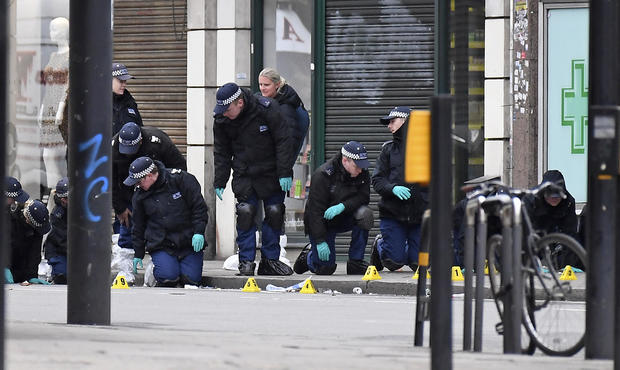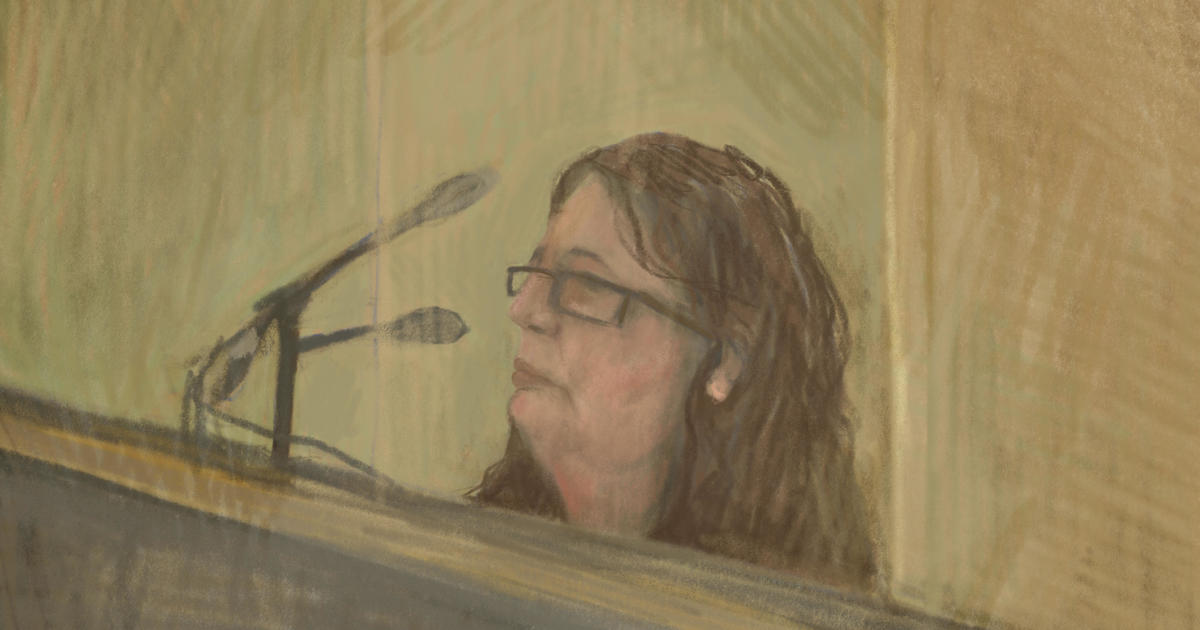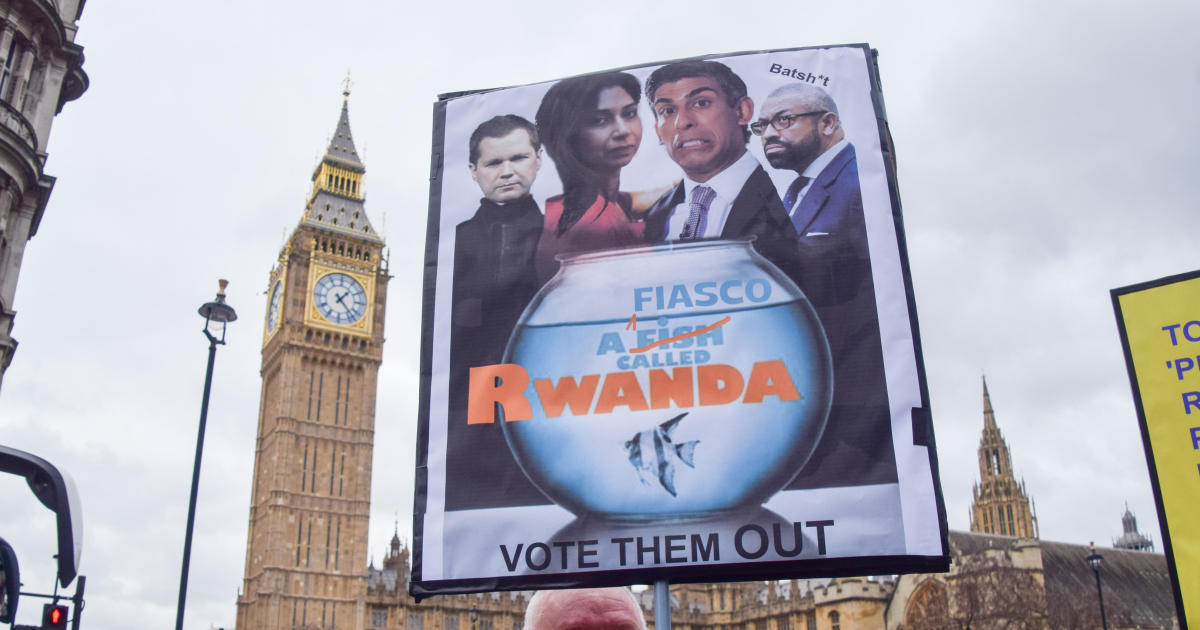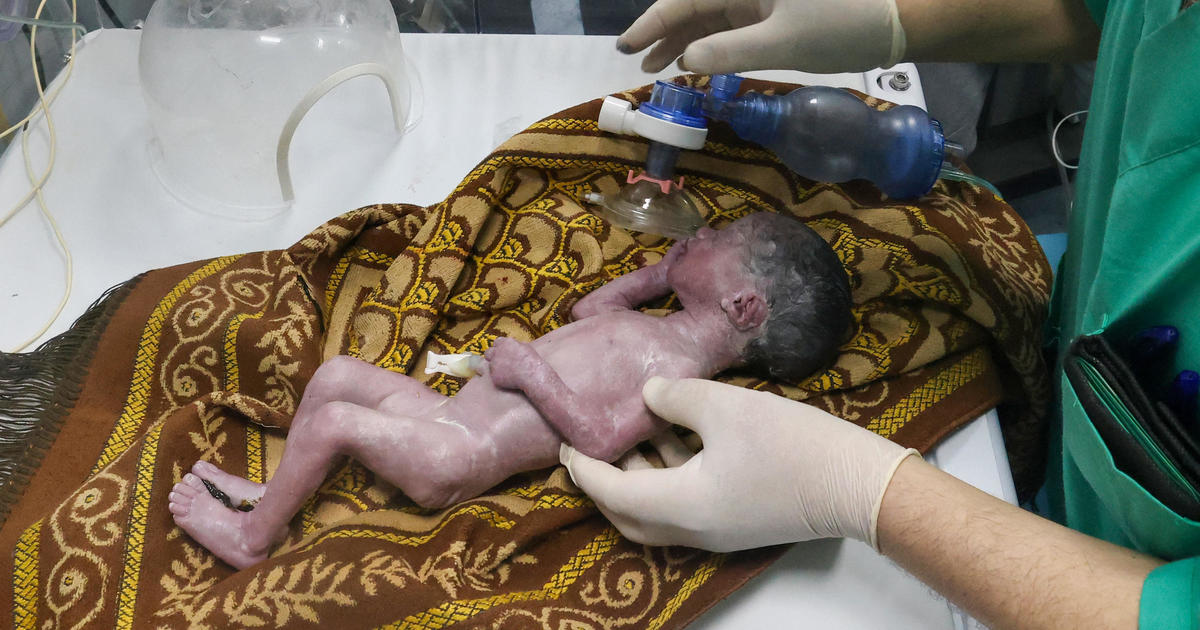London stabbing prompting U.K. to change early release rules for terror convicts
London — The British government plans to announce new rules for the imprisonment of convicted terrorists after an Islamic extremist who was recently released from prison stabbed two people in south London, the second such attack in less than three months.
Prime Minister Boris Johnson said the government would release its plans later Monday. Following Sunday's attack and a November 29 attack in which two people were killed in central London, the government said it would effectively stop the early release of convicted extremists, double sentences for terrorism convictions and overhaul the conditions under which such suspects can be released back into the community.
"This is a liberal country, it is a tolerant country,'' Johnson said. ""But I think the idea of automatic early release for people who obviously continue to pose a threat to the public has come to the end of its useful life."
He said the difficulty is how to apply new laws retrospectively to people who are currently in the system. He added that deradicalizing people was a "very, very difficult thing to do" and that he was concerned about the way convicted terrorists in prison are handled.
"Do you detain them en-bloc, in one group, and try to keep them together because that avoids them, as it were, infecting or passing the virus of their beliefs to others in jails, or do you disperse them and try to stop them reinfecting each other?" he said.
A man police identified as 20-year-old Sudesh Amman strapped on a fake bomb and stabbed two people on a busy London street Sunday before being shot to death by police. His mother said that he had been radicalized in jail.
Radicalized in jail
"He became more religious inside prison, that's where I think he became radicalized," Haleema Faraz Khan told Sky News. "He was watching and listening to things online which brainwashed him. Before he went to prison he was not that religious. After he came out he was really religious.
Khan said she saw her son a few days before the attack and he seemed "normal." She also said she spoke to him on the phone just hours before the attack, and he asked her to make him a dish he liked.
"He was a polite, kind, lovely boy. He was always smiling. I'm so upset. He was only 20 years old," she said.
Deputy Assistant Commissioner of the police Lucy D'Orsi said Amman had previously been convicted of publishing graphic terrorist videos online and had stockpiled instructions on bomb making and knife attacks.
Police on Monday continued to search a hostel that Amman moved into less than two weeks ago. Officers also raided another property outside of London.
Officers had been trailing Amman at the time of Sunday's attack, D'Orsi said, but were unable to prevent the bloodshed in the south London neighborhood of Streatham, where Amman struck outside a drug store on the main road.
The intelligence think-tank SITE said the Islamic State of Iraq and Syria (ISIS) claimed the south London attack was perpetrated by one of its "fighters."
ISIS has been responsible for deadly attacks in Europe in the past few years, but also has a track record of claiming attacks as its own, often with no evidence to prove it. In some cases, such attacks were carried out by perpetrators with no known ties to the extremist group.
The attack in London recalled a November stabbing attack carried out by another man who had served prison time for terrorism offenses. Two people were killed in that attack.
Counter-terrorism officials have warned of the threat posed by militants unless the government couples prison sentences with effective de-radicalization programs. More than 70 people convicted of terror offenses have been released in Britain after serving time in prison and more than 200 others are currently in prison convicted of terrorist offenses.
Broken system
London Mayor Sadiq Khan said Sunday's attack was clearly foreseeable in the wake of the London Bridge murders.
"One of the questions I've got for the government is what are we doing about those 70-odd people who have been released from prison?" said Khan, who is a member of the opposition Labour Party.
Ian Acheson, who led an independent review of Islamist extremism in the criminal justice system, told the BBC that the risk-management system was "broken."
"We are going to have to accept that we have to be much more skeptical and robust about dealing with the risk of harm,'' he said. "We may need to accept that there are certain people who are so dangerous they must be kept in prison indefinitely."
The former head of U.K. counterterrorism policing, Mark Rowley, told the BBC there was some logic in giving convicted militants indeterminate prison sentences.
Rowley said unless current law was changed, "police and security services are going to have many, many more cases that they are prioritizing."




